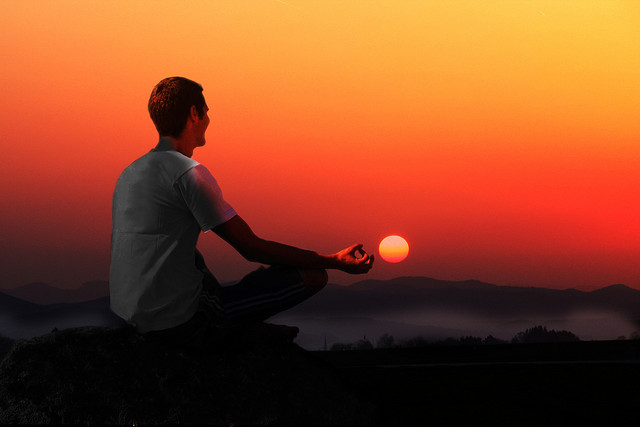
In his poem Desiderata, Max Ehrmann writes, “And whether or not it is clear to you, no doubt the universe is unfolding as it should.” These words are in my conscious mind each day. I believe in these words, but it is far from easy to hold such a mindset each moment of each day. I think it comes down to a feeling of control. Humans want to feel in control, yet in truth it is impossible to control the universe around us.
This clash causes great stress in our lives. We start each day with an idea of how things should go, and then we receive an unexpected phone call, or an extra assignment from our boss, and the smooth progression of the day is derailed. There is now too little time and too much to do and our fight-or-flight response is firing the remainder of our day.
To be honest, I do not have the answer on how to solve our stress conundrum. The reality is that we cannot avoid stressors in our lives; we must learn to manage them the best we can. And as I’ve written before, awareness of the issue is the first step in managing it. I hope you had a chance to try out three deep breaths last month. Take three more at each and every moment you remember.
One could guess that when such a beautiful poem as Desiderata was written, the author was in a ‘flow state’. He was in the zone. Ideas formulated in his mind, the muscles in his arm that controlled his pen moved gracefully and the ink spilled out to create an assembly of words with such depth that people still find relevance in them decades later. Artists, musicians, and athletes are intimately familiar with this feeling.
You can be too.
The full understanding of the psychological concept of a flow state can get complicated. I would like to keep it simple, so my apologies if I omit some of the finer details of the concept. After all, our lives are complicated enough. Simplification deserves an entire discourse of its own.
The concept of a flow state was developed by Mihaly Csikszentmihalyi, a Hungarian psychology professor who has interests in the psychological realm known as positive psychology. According to Csikszentmihalyi, flow is described as “the holistic experience that people feel when they act with total involvement.” Another way I like to think of it: meditation in motion. It is being completely absorbed in the present moment.
The key idea here is being present. Mountains of literature have been written about living in the present moment, but when it comes down to it, it is difficult to do. Day in and day out, we worry ourselves with both the mistakes of the past and the unknown of the future. A flow state can break up the rumination, so we sync into the present moment and experience relief from the stressors of our lives. The effects are cumulative: The more we practice presence the better we will get at living fully in each moment. Stressors will melt away when we achieve such abilities.
Flow states can be achieved in a variety of ways. My favorite way to tap into flow is with physical activity. Physical exertion forces us to be present. A personal example: When I hop into the pool, everything around me simply melts away. There is something about propelling myself through the medium of water that centers my mind. I focus on form, listen to my breath, feel the water rush against my skin, and listen to the funny sounds the bubbles make as I glide along the surface. I no longer worry about how I wished I would have done something differently earlier in the day, or get anxious about what potentially will unfold in my future. It is perfect practice for cultivating presence.
You do not have to swim though. You must find what type of physical activity works best for you. Each of us has different interests, abilities, and desires. A slow walk around the neighborhood may do the trick for some, while lifting heavy things up and setting them back down works for others. Even gentle stretching before retiring for the night would work. Finding what works for you should be fun — look at it as an adventure. We tend to lose our playful nature as we mature, but in order to achieve flow we need to be fully engaged in and enjoy the activity we are doing.
This is my next challenge to you: Find a physical activity in which you can center yourself in the present moment. Try out a variety of activities, be open to new experiences. Do not think too hard about it and do not try too hard to achieve flow. Let it happen. It will help calm your mind, invigorate your body, and stabilize your emotions. It is one healthy coping technique for the incessant stressors of our modern lives.
Above all else, just go with the flow. Know that your life is unfolding as it should.
References
1. Ehrmann, Max. Desiderata. 1927. Accessed via: http://www.cs.columbia.edu/~gongsu/desiderata_textonly.html
2. Mihaly Cziksentmihalyi. Flow – The Psychology of optimal experience. Harper, 1990
3. Get Moving? Where Do I Start? American Heart Association. 2011. http://www.heart.org/HEARTORG/GettingHealthy/PhysicalActivity/StartWalking/Get-moving-Where-do-I-start_UCM_307978_Article.jsp.
image by AlicePopkorn via flickr

